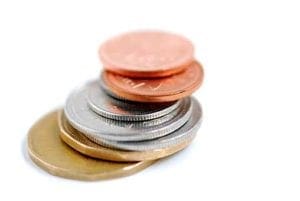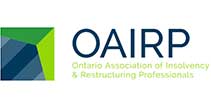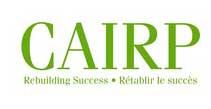The dreaded “S” Word….SAVINGS. It’s enough to make people cringe, bury their head in the sand, or wistfully imagine they are actually able to find the ability to set money aside for the things they want the most in life.
 In my opinion, there four different types of savings:
In my opinion, there four different types of savings:
- Irregular Expense Savings
- items like car repairs, vet bills, clothing, gifts, sports, and prescription costs.
- Short Term Savings
- down payment for a house, car, vacation, or home renovations.
- Long Term Savings
- retirement, and education (assuming your children are still infants otherwise this may be a short term savings expense).
- True Emergency Savings
- loss of job, illness. Aim to save 3-6 months worth of expenses.
You Don’t Have to Tackle it All at Once
In a perfect world, 5-10% of your income should go into each of these four different types of savings categories.
That can seem like a lot if most if your income is going to pay for basic necessities.
For now, it may be enough to start saving for irregular expenses and put something into the other savings categories as your income increases.
Irregular Savings
Irregular savings are particularly important because it’s just part of your true cost of living.
Back to school shopping comes every year, license plate renewals, car repairs, vet bills, Christmas – these expenses are predictable so if you aren’t planning for them, it means having to juggle your budget when they arise – or worse – going into debt to pay for them.
Estimate how much these items cost in a year, and divide by 12. If you receive a bi-weekly paycheque then you need to divide that amount by 2 again, for example:
- Total yearly expenses – $3000
- divided by 12 months = $250/month
- divided by 2 paycheques per month ($250/2) = $125
Now that you know the what the monthly amount is you go to the bank and with your 2 accounts, (Chequing Account & Saving Account).
Your paycheque should go into one account, the you have the bank automatically transfer the $250 into the chequing account each month.
Knowing the amount that you need to set aside to cover these expenses will assist you in making important decisions like whether you can really afford to change jobs, or move, or a higher car payment.
What frustrates many people is that they may constantly have to dip into those funds, but don’t fret, that’s the very nature of this particular type of savings!
The balance in an Irregular Expense Savings Account will constantly be going up and down as the irregular expenses actually arise.
It’s the other three types of savings that you should see build at a steady rate and not be dipping into until the goal has been achieved.
What if You Don’t have the Income to Save?
You may be thinking, ‘Lady, what planet do you live on? Don’t you know it’s tough just to pay for basic necessities in this day and age let alone save?’
You’re right, the cost of living in the GTA is quite high and many single-income homes, people working at minimum wage, or on fixed income struggle to make ends meet.
Many of our clients just don’t have the ability to save a fixed amount every month. As an alternative, some try to stock-pile food so when a crisis hits they cover it with their regular grocery budget and they know that they will be okay because their freezer and cupboards are full.
Tax Refunds, GST’s, and the OTB can also be a good jump start to savings – even $1000 in savings can make a significant difference and help prevent you from going into debt.
Community Resources can also help in a pinch:
High Debt Levels Hinder Savings
I see this every day. Many Canadians are just one missed paycheque away from financial disaster.
Too much debt prevents them from being able to save because their future income is already spoken for. When an irregular expense or a true emergency arises (like a missed paycheque), there is no savings to draw on, leading to more debt and trapping them in a never-ending cycle.
If your high debt load is making it tough just to manage your day-to-day expenses let alone save for irregular expenses, emergencies or future goals, you may need to talk to someone about regaining control.
At Yanch Dey, our Licensed Insolvency Trustees can explain how a Consumer Proposal or a Bankruptcy will reduce or eliminate your debt so you can get a fresh start.
If you would like to talk to someone give us a call at 905-721-7506.




Comments are closed.